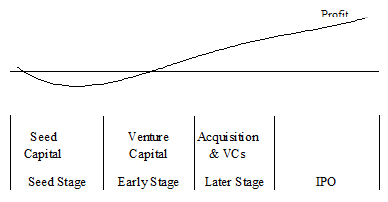What is Seed Capital?
Seed capital is the earliest stage of capital investment for a start-up venture.
How Does Seed Capital Work?
Startup financing involves several stages of capital formation: seed capital, venture capital, mezzanine or bridge funding, and an initial public offering. The seed capital stage is the earliest stage of capital investment in a startup company. Seed capital is usually provided by the owners, family, friends, or angels (i.e. wealthy individuals who invest in companies on an individual basis). Some venture capital investors may invest seed capital in a startup, but typically on a smaller basis than their usual investments.

Seed capital is provided during the earliest stage of the company's formation, during the period of time when the company is involved a variety of early operations such as market research, product development, or prototype production. During this early stage of investment, the company typically does not have revenues, or at least revenues that lead the company to be breakeven.
Why Does Seed Capital Matter?
Seed stage capital is invested on the basis of the entrepreneur's track record, skills, and business capabilities and the product's perceived strengths. Seed capital stage investment is the most risky, but because of the early stage of investment, it can have very substantial rewards. However, many early stage companies issue shares to follow-on investors, such as venture capitalists, and dilute the ownership of seed stage investors.



